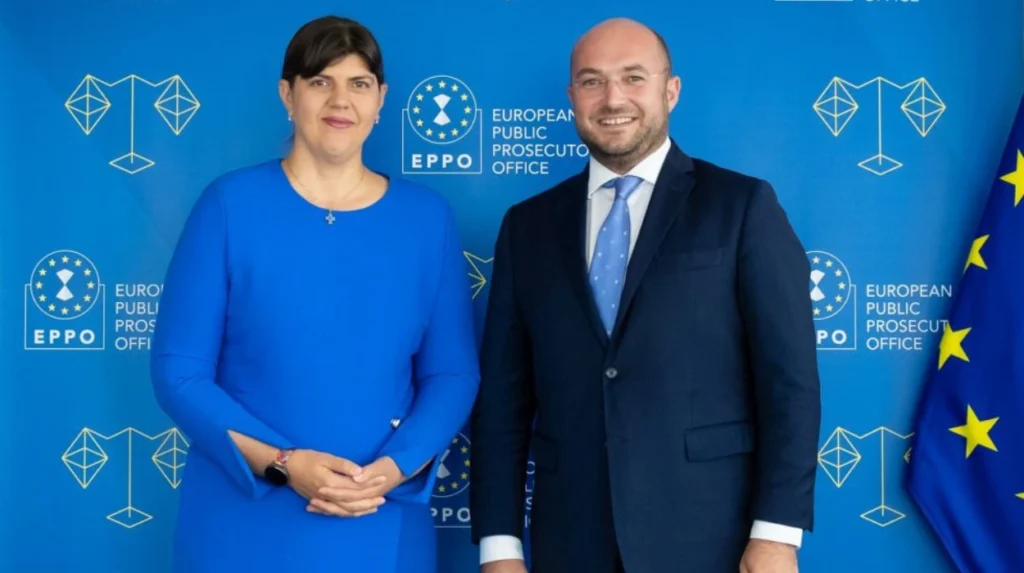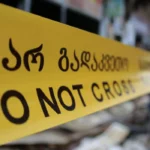Luxembourg, September 3, 2025 — Bulgaria’s Minister of Justice, Georgi Georgiev, has informed European Chief Prosecutor Laura Kövesi about significant legislative reforms designed to enhance the effectiveness of the European Public Prosecutor’s Office (EPPO) in Bulgaria. This marks a crucial step in Bulgaria’s ongoing efforts to combat corruption, fraud affecting EU funds, and financial crimes.
During his visit to Luxembourg, Minister Georgiev presented a draft bill proposing amendments to the Bulgarian Criminal Code aimed at addressing practical challenges faced by delegated prosecutors working within the EPPO framework. The reforms seek to clarify legal definitions around EU funds and to introduce newly qualified offenses that would better capture fraud, mismanagement, and abuse related to EU financial interests.
Key Legal Enhancements in the Draft Bill
The proposed amendments specifically transpose the European directive on fraud affecting the financial interests of the European Union. Minister Georgiev explained that “the Criminal Code will now explicitly include EU officials and set clear definitions of what constitutes ‘EU funds’” to prevent contradictory judicial outcomes.
Among the noteworthy proposals are the introduction of qualified offenses related to mismanagement and abuse of office concerning EU funds. The bill also includes enhanced measures targeting customs fraud designed to evade duties payable to the EU budget. These changes are expected to provide investigative authorities with stronger legal tools to pursue crimes that endanger the Union’s financial interests.
The reforms were developed with input from diverse stakeholders, including Bulgaria’s Supreme Court of Cassation, Sofia City Court, Supreme Cassation Prosecution Office, EPPO representatives, the Finance Ministry, Customs Agency, and academic experts—reflecting broad consensus on the needed improvements.
Strengthening Bulgaria’s Fight Against Money Laundering and Terrorism
Minister Georgiev also briefed Ms. Kövesi on Bulgaria’s progress in implementing anti-money laundering recommendations, which led to the country’s removal from the Financial Action Task Force’s grey list. Legislative reforms approved by Bulgaria’s National Assembly earlier this year have introduced tougher sanctions against legal entities involved in corruption, money laundering, and terrorism financing.
“We are building the institutional and legal capacity not only to prosecute corruption effectively but to prevent it before it takes root,”
Georgiev said during the discussions. This holistic approach includes reforms in criminal law, enhanced confiscation measures for assets acquired through illicit activities, and stricter rules to address corruption offenses.
Providing Dedicated Infrastructure for Delegated Prosecutors
In an effort to support the EPPO’s delegated prosecutors in Bulgaria, the government has committed to providing new, dedicated premises in Sofia. This facility will better accommodate their administrative and investigative work, ensuring operational efficiency and enabling closer cooperation with national institutions.
Minister Georgiev emphasized the importance of such infrastructure, highlighting that successful prosecution of cross-border EU crimes requires appropriate logistical support. This commitment was welcomed by Chief Prosecutor Kövesi, who acknowledged the challenges Bulgarian authorities face while urging continuous efforts to fill vacancies for qualified European Delegated Prosecutors.
Political and Judicial Challenges Ahead
While the reforms signify progress, Bulgaria continues to grapple with systemic challenges related to judicial independence and politicization. The appointment of delegated prosecutors remains complex, with certain national bodies involved in nominations perceived as politicized. This historic challenge impacts the ability of the EPPO to operate with full autonomy in Bulgaria.
Moreover, Bulgaria’s Prosecutor’s Office is undergoing restructuring to strengthen its capacity to prosecute crimes involving magistrates and high-level corruption cases. Despite improvements, concerns remain regarding prosecutorial autonomy and judicial independence, particularly given recent investigations into judges and prosecutors themselves.
Laura Kövesi’s Perspective on Bulgaria’s Reform Efforts
Laura Kövesi, the Chief European Prosecutor renowned for her anti-corruption work, praised Bulgaria’s transparency and legislative progress while underscoring that reform is an ongoing journey. She stated,
“The reforms presented today are a step in the right direction. But fighting corruption is a marathon, not a sprint,”
highlighting the need for sustained political will and institutional accountability.
Kövesi reiterated EPPO’s commitment to supporting Bulgaria through technical cooperation, information sharing, and joint investigations targeting complex crimes such as cross-border money laundering and misuse of EU funds.
Broader Context: Bulgaria’s EU Integration and Rule of Law
Bulgaria’s reforms are part of broader EU efforts to strengthen rule of law standards across member states. The European Commission’s 2024 Rule of Law Report identified areas requiring improvement, particularly in judicial oversight and prosecutorial independence, which are directly relevant to the EPPO’s operational environment.
As Bulgaria aligns its legislation with EU directives, it aims to detach itself from its past reputation of endemic corruption and judicial inefficiency. Enhanced cooperation with EU bodies like the EPPO is seen as pivotal to this transformation.
A Crucial Milestone in Bulgaria’s Justice Reform
The information shared by Minister Georgiev with Laura Kövesi signals Bulgaria’s commitment to modernizing its criminal justice system, enhancing the European Prosecutor’s Office’s ability to tackle crimes affecting EU financial interests, and addressing challenges related to political interference and judicial independence.
While considerable work remains to fully implement and enforce these reforms, Bulgaria’s approach offers a hopeful outlook for more effective prosecution of corruption and financial crimes under the EPPO framework, bolstered by improved legislation and dedicated institutional support.
The ongoing dialogue between Bulgarian officials and the European Chief Prosecutor embodies a shared determination to uphold the principles of transparency, accountability, and justice, crucial for preserving the integrity of European Union funds and the rule of law across member states.







